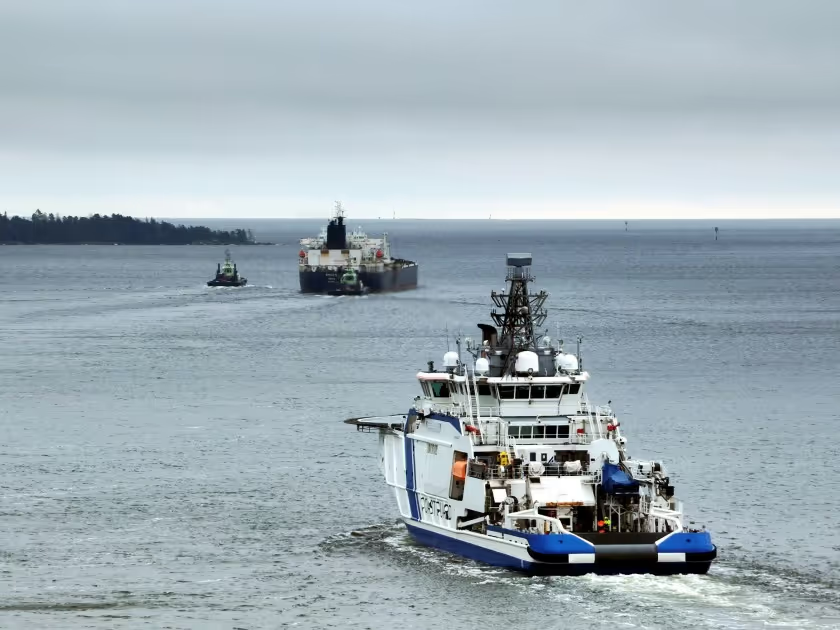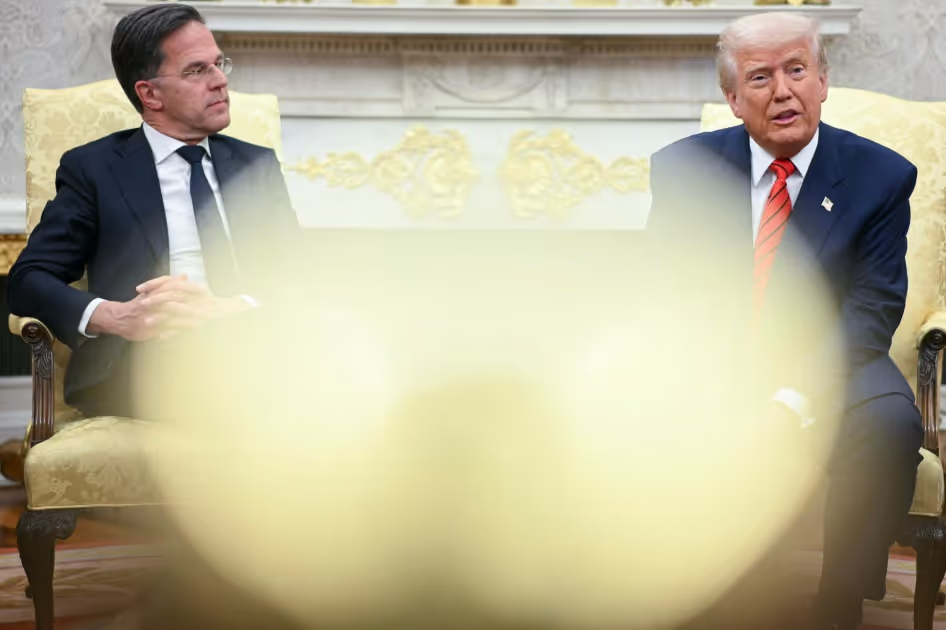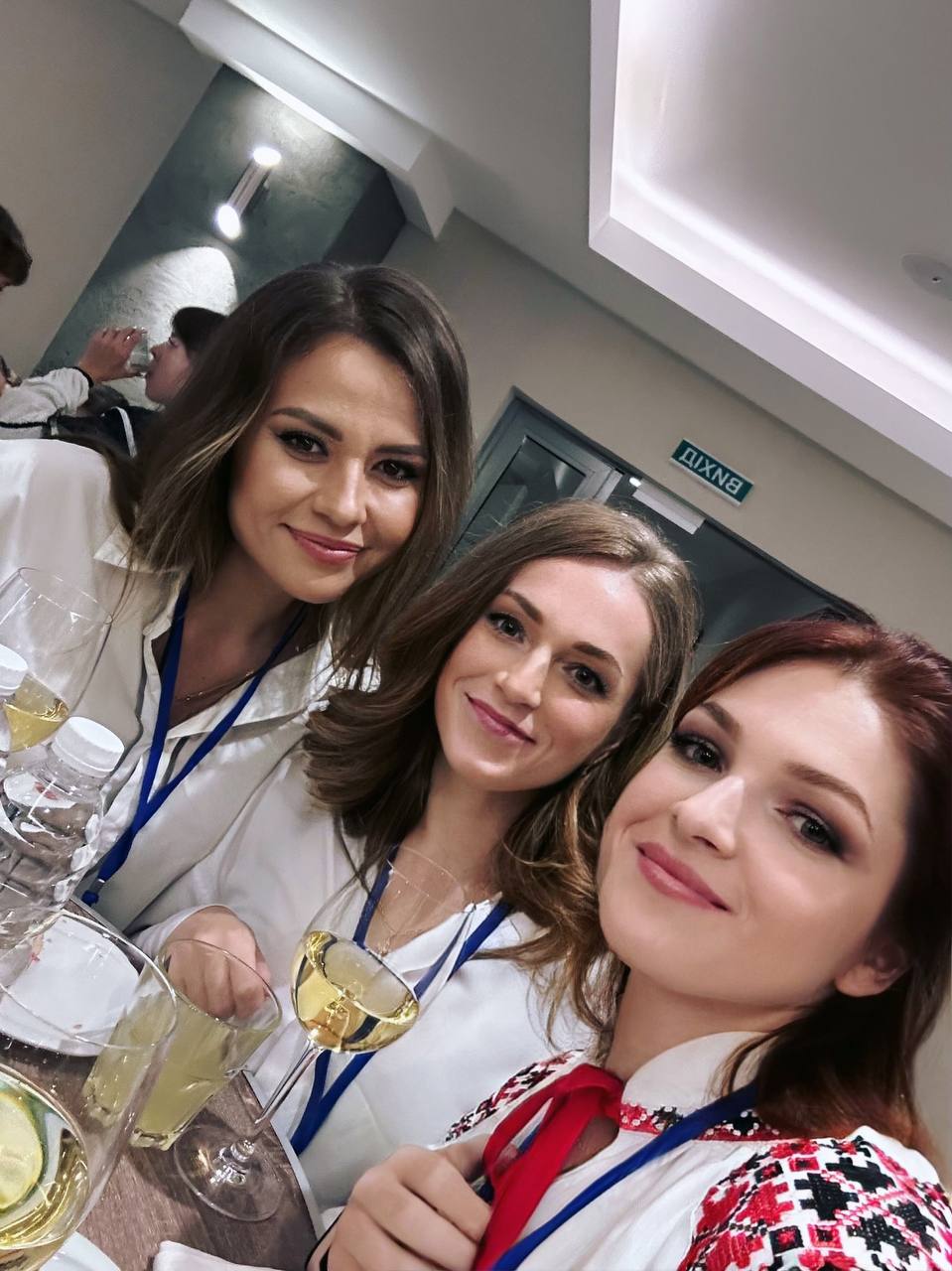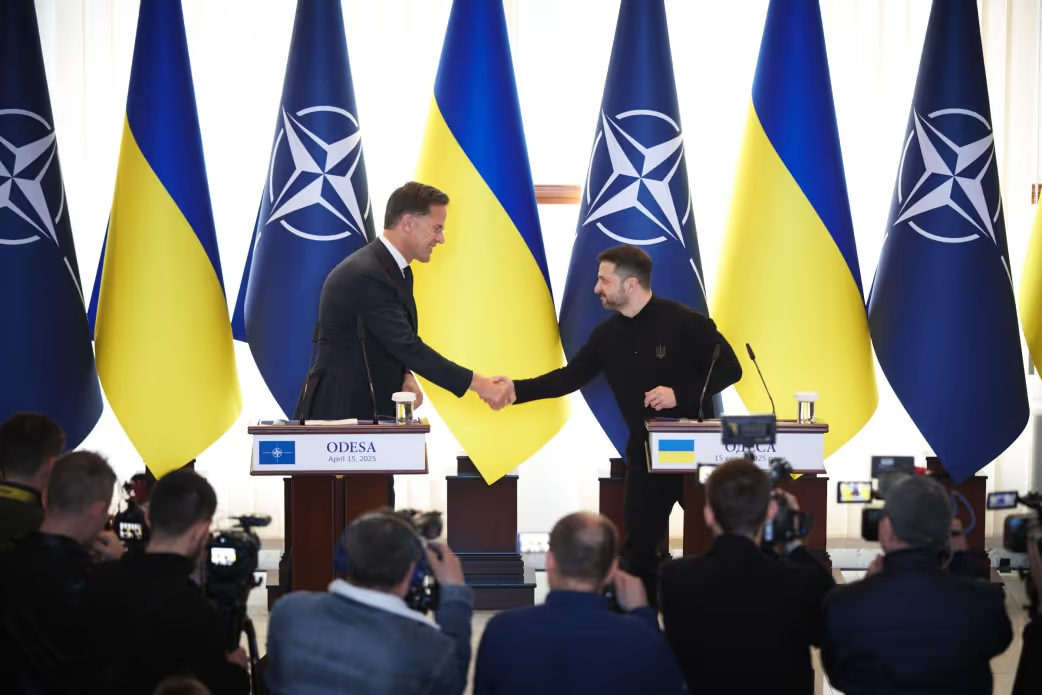John Henden: “There is an unwritten code in British military circles: 'Never talk to civilians about your active service”
Tetiana Vyhovska: Currently, Ukraine has 1.2 million registered veterans, and after the war ends, this number, including their families, may grow to 5-6 million. The issue of their adaptation is extremely pressing. In your opinion, what is the best way to help Ukrainian servicemen integrate into peaceful life after returning from the front?
John Henden: As a former serviceman, I remember the immense difficulty of transitioning out of the army and returning to civilian life. For many, this can be a daunting process. The best way to help is to allow plenty of time for this transitional phase and to show maximum patience. The first rule is not to ask detailed questions about their frontline experience. If veterans want to talk about it, they will initiate the conversation themselves. In British military circles, there is an unwritten code: "Never talk to civilians about your active service."
Next, encourage veterans to stay connected with their fellow servicemen, military community organizations, and associations. Charities and humanitarian organizations with a social focus that provide individual support during the transition period can also be highly beneficial. These services work best when staff members are themselves military veterans.
.avif)
– Ukraine offers support for veterans who want to start a business, but not every veteran sees themselves as an entrepreneur. One issue is the return of servicemen to civilian professions. For example, a driver in the Armed Forces of Ukraine can relatively easily find a job, but an operator of unmanned aerial systems may find it much harder. This sense of being "unneeded" in a peaceful society can lead to internal conflicts. Could you provide advice on how to assist in such and other situations?
– Civilian life moves at a slower pace than military life. It’s essential to prepare for demobilization in advance. Think about the future civilian role you could or would like to take on. Here, it’s important to remember The Rule Of The 6 P's: “Proper Preparation Prevents Pathetically Poor Performance”. Prior planning and preparation are crucial and help prevent low productivity. I can offer the following advice for veterans to improve their adaptation:
1. Don’t fall into pessimism over rejections.
Job searching is a natural process that requires patience and time. Rejections don’t always reflect your lack of professionalism but often depend on other factors, such as competition or job limitations. It’s important not to take rejection as a personal failure. Focus on viewing it as an opportunity to learn, improve your skills, and find a job that best matches your abilities. For veterans, this might be more challenging, as transitioning from the military to civilian life requires adjustment. Persistence is key to success.
2. Embrace change.
Life in a peaceful environment is significantly different from life in the military. The pace, requirements, and social interactions are all different. Instead of resisting change, try to accept it as part of this new chapter in your life. Recognize that change can be difficult, but it also opens up new opportunities. It’s essential to learn to adapt to new realities and find positive aspects within them
3. Lower Your Expectations.
It’s not always possible to immediately find a job that matches your military experience or the status you held during service. And that’s okay. Start small if necessary, and gradually work towards your goals. Setting expectations too high can lead to disappointment, so it’s better to stay realistic and understand that success takes time and steady progress.
4. Replace Military Jargon with Civilian Language.
Many terms and habits that are natural in the military environment may be unfamiliar or even irrelevant to civilian society. For example, instead of using military acronyms or specialized terminology, opt for simpler, commonly understood words. This will help you communicate better with employers, colleagues, and acquaintances. Avoid using complex terms in your resume or during interviews, and explain your skills in a way that’s clear within a civilian context.
5. Stick to Your Own Standards.
While the transition to civilian life may seem challenging, it’s essential not to lose the values and principles that shaped you as a person. Your standards are what help you maintain integrity, discipline, and build relationships based on mutual respect. Even in civilian life, you can stay true to yourself, preserving the qualities you consider important.
6. Enjoy the Transition to Civilian Life with a Positive Mindset.
The transition to civilian life is not just a challenge but also an opportunity to open new horizons. Treat it as a new chapter that allows you to grow, meet new people, and try things you never had time for before. A positive attitude will help you overcome difficulties and find satisfaction even in the smallest achievements. Every step forward is a victory, and it’s important to celebrate each one.

– What are some examples from your practice of successful integration of military personnel into society that you could share?
– I will share two examples. The first involves a former army warrant officer first class who found leaving the military extremely difficult. He fell into a deep state of grief, losing touch with his comrades. He suffered from PTSD, developed during two combat tours in Iraq and Afghanistan. He had a two-year-old son, a wife with whom he constantly quarreled, and his mother-in-law lived with them as well. The veteran became increasingly suicidal.
His family encouraged him to explore various jobs, but he struggled to find the “right fit” until he came across an interesting opportunity at a construction company. They were seeking demobilized military personnel who had been non-commissioned officers —and our veteran was a Warrant Officer Class 1. The reason this construction company specifically wanted such employees was because they were accustomed to leading people. The job involved managing personnel inspecting plumbing, kitchen equipment, electrical work, finishing, plastering, and so on, while reporting on their performance and insisting on improvements or corrections where needed.
The veteran completed an initial training course and became an excellent quality control inspector for the company, finding a new purpose for himself.
The second case involves a former Royal Marine who stayed in touch with his unit’s regimental association and the local group. He took charge of their website, regularly updating it and posting entries. Later, together with his wife, they bought a local pub with an attached restaurant and hired other comrades skilled in cooking. They created a successful veteran-run business employing about five or six people.
– Due to the war in Ukraine, the divorce rate has increased. Forced separation has a negative impact on marriages, with couples often growing apart and losing mutual understanding. After a veteran returns from war, new challenges may arise, such as restoring harmony within the family. Are there any strategies for rebuilding understanding after a long separation?
– For the spouses of veterans and their parents, I refer to a scene in the war drama Full Metal Jacket. It’s worth watching this movie, even just to gain a basic understanding of what’s happening in the mind of your veteran. In the story, the wife of a returning soldier had no understanding of what he had gone through. The scene in question is where they were standing in the kitchen peeling carrots, and he just couldn’t handle the normality. He put on his uniform again and returned to the combat zone.
Other helpful measures include support groups. Couples therapy is highly beneficial but should ideally be provided by organizations specializing in military or veteran care. It’s also essential to understand that adaptation takes time. Here are five things families of servicemembers need to know:
1. It’s normal for a veteran’s PTSD to affect the entire family.
2. Seek help if necessary.
3. Remember that while you don’t have PTSD yourself, you may also experience symptoms.
4. Stay close to your veteran.
5. Don’t give up!
Inquire about veteran support organizations in your area. In the UK, there are numerous veteran support services available in different towns and cities. After several conflicts over the past 15 years, an extensive network of such centers has been established, and families find them very helpful, receiving support from like-minded individuals.

– How can we support families who have lost loved ones in the war? What role does the community play in this?
– First of all, it’s essential to recognize that most people experience loss, profound grief, and pain as a natural process. Every effort should be made to avoid classifying this as a mental illness, syndrome, or disorder, as biomedical psychiatry might suggest.
Secondly, psychotropic medications should be avoided wherever possible, except for short-term use. In my practice, I usually recommend no more than two to three weeks, and even then, only in very small doses if absolutely necessary. Additionally, “self-medication” with alcohol, nicotine, street drugs, or over-the-counter medications should be discouraged.
The next point is to encourage individuals to talk with trusted friends or veteran comrades.
For those mourning the loss of a loved one, it can be meaningful to honor their birthday every year. This can become an important ritual. Another idea is to create a memory box for the fallen comrade—a small box containing medals, personal letters, or valuable items that belonged to them
If symptoms of grief and loss persist, seeking professional help is essential. Ideally, the counselor or therapist should have military experience or a deep understanding of military culture, as this is much more effective.
Again, grief support groups and many online resources can be highly beneficial. In America, these services are very advanced. I’m not sure how developed they are in Ukraine, but if they’re being implemented, it’s worth supporting them at every stage.
In the UK, an organization called SSAFA – The Armed Forces Charity (Soldiers', Sailors', and Airmen's Families Association) has been operating for many years. Perhaps there is something similar in Ukraine? If not, it would be worth adopting this model, which has proven effective for many veterans. SSAFA provides support to those dealing with the loss of loved ones. It’s possible that similar support groups already exist in Ukraine.
In the US, there’s an organization called TAPS (Tragedy Assistance Program for Survivors). Their website contains a wealth of helpful information. TAPS groups provide comfort and hope through a national network of support and resources for people coping with grief. They teach survivors to transform their grief into embracing the mission of their fallen hero, giving meaning and purpose to their lives in service to their country. This is a very focused and encouraging approach to dealing with loss.
Another example is the so-called Purple Pack. This is a guide to supporting military families who have lost loved ones. It’s an online resource filled with information about benefits, charities, assistance funds, and more. It’s a step-by-step guide that provides families grieving a loss with a sense of control over their situation and the process. Creating a similar service in Ukraine could give families a valuable resource during such a difficult time.
For children who have lost a parent in combat, the British Army offers a system of support. For instance, there’s a website called Scotty’s Little Soldiers, which helps children of fallen soldiers. It’s an incredibly useful resource.
– Veterans are often haunted by the "ghosts of war", such as triggers and flashbacks. What techniques can be suggested to help them cope with flashbacks and triggers in peaceful environments?
– I refer immediately to my book, Beating Combat Stress: 101 Techniques for Recovery, which has already been translated into Ukrainian and is being prepared for publication. The first chapter focuses on triggers and presents five effective techniques. One of them is called " Diaphragmatic Breathing." Triggers can often lead to a sudden inhalation. This technique helps veterans regain control over their breathing and themselves.
When faced with a trigger, take control of your vision, sounds, smells, taste, and bodily sensations. Then, slowly inhale using your diaphragm, counting to 7. Next, exhale slowly to the count of 11, also using your diaphragm: the abdomen pulls in on the exhale and expands on the inhale. This breathing pattern is known as the “7/11 technique.” Practice it for several minutes 6–7 times a week for 6–8 weeks. During this period, the technique becomes fully ingrained and can be used anytime. Diaphragmatic breathing has a profound psychobiological and anti-stress effect, so I strongly encourage mastering this technique.

The second chapter of my book focuses on flashbacks and describes six techniques. The third chapter addresses intrusive thoughts, which can be an even more complex issue since these thoughts occur both day and night. Memories of combat, the faces of enemies, scenes of blood and injuries—all these can create significant challenges. This chapter includes 15 different techniques that can be highly effective.
One critical point about triggers and flashbacks: if a veteran masters a technique to manage triggers, it can prevent a flashback from developing. In other words, if the trigger is stopped, the flashback does not progress. This is a crucial distinction.
– As of 2023, Ukraine’s Ministry of Health reports that over 20,000 people have been officially diagnosed with post-traumatic stress disorder (PTSD). What innovative approaches are being used worldwide to treat PTSD?
– The U.S. Department of Veterans Affairs and military charities in the UK are leaders in this area. Unfortunately, the American model demonstrates that the Department of Veterans Affairs is heavily influenced by biomedical psychiatry, where medication often dominates treatment. However, these treatments frequently provide limited relief, and many veterans suffer severe and long-lasting side effects from one, two or a cocktail of medications.
It is important to say something here about the term ‘PTSD’. This was coined by biomedical military psychiatrists during the Vietnam war in the 1960s/70s and is a very problem-focused diagnostic label. Colonel Stephane Grenier, a Canadian military veteran, coined the term COSI, as mentioned in earlier answers above. This is a far more hopeful and optimistic term and one I prefer. People recover from injuries but ‘disorders’ can present a harder challenge.
On a more positive note in the US, several effective techniques are employed, particularly by the Department of Veterans Affairs (VA). Prolonged Exposure Therapy (PE): This therapy has proven highly successful and effective. I spoke with a staff member of VA who shared that PE is one of their top approaches. Cognitive Therapy: Widely applied, along with Cognitive Processing Therapy (CPT). Stress Inoculation Training: Another widely used method.
My method, Solution-Focused Trauma Recovery Therapy, has also shown great effectiveness. I’ve taught this technique in Ukraine, including in Lviv and Kyiv, and it can be mastered by anyone. It is highly effective. Overall, non-pharmaceutical approaches are preferable whenever possible, except in short-term cases.
One more thing – in the United Kingdom, the most effective organization working on veteran recovery is PTSD Resolution, which, unfortunately, is underfunded and does not receive any government funding, relying solely on voluntary donations.
A few years ago, they conducted a study (I was involved in the early stages of this charity’s work), which showed that about 81% of veterans with psychological trauma fully recovered. This concerns combat or operational stress injuries. And that is twice the success rate of both the National Health Service (Mental Health Services), and Combat Stress, which is a very large and well-funded organization, but sadly, it is largely based on a medical model approach. PTSDResolution is a good example for Ukraine. I recommend adopting their approach.

– What role does public recognition and gratitude play in the rehabilitation process of military personnel?
– Public recognition and gratitude are extremely important. From my own experience, I know that the Ukrainian population takes great pride in its heroes—I have observed this during my visits to Ukraine. This support can be incredibly beneficial in the rehabilitation process, as veterans feel the backing of their local communities when transitioning to civilian life.
On the other hand, negative examples exist. In the 1970s, when American military veterans returned from the Vietnam War, many faced public indifference. Upon arrival at airbases, they were not welcomed as heroes returning home, which significantly complicated their rehabilitation process. As a result, they not only had to deal with their combat experiences but also with the perception that society did not support them. This must not happen in Ukraine—on the contrary, the annual Defender of Ukraine Day on October 1st serves as a great opportunity to honor, celebrate, and express gratitude for the contributions veterans have made during their service.
– How can the transmission of psychological trauma from parents to children be prevented?
– Preventing the transmission of psychological trauma is only possible by ensuring that veterans receive timely and effective psychological assistance immediately upon their return. If symptoms persist, it is crucial to provide ongoing psychological support.
The worst case I have encountered involved the father of my school friend. He fought in World War II in the Far East and later in the Korean War. He never addressed his symptoms, suppressing them instead, which made him irritable and angry. My friend and I discussed it and speculated that he had likely taken many enemy lives during his military service. However, he never spoke about it. He was highly conflict-prone, his family suffered, and now even the third generation is experiencing the consequences of his combat stress injury. This is a terrible situation that must be avoided at all costs. If only this former soldier had received effective help after returning from Korea, I am sure things would have been very different, so many members of his family being saved from harm.
– How has your military experience influenced your understanding of stress and its consequences?
– Significantly. My military service, along with 20 years of experience training military social workers and treating veterans, has greatly deepened my understanding. I believe that the best support for veterans comes from specialists who have also served and gained firsthand experience of war.
– Which of the techniques described in your book is the closest to you personally, and why?
– I would highlight two. The first is the "7-11 Breathing" technique, which I have already mentioned. It is incredibly effective and has personally helped me manage my own triggers. This technique is simple yet powerful, allowing veterans to quickly transition from a state of uncontrolled emotional outburst to regaining control over their symptoms.
The second technique is the "Letter for a Rainy Day." It involves writing an important letter to oneself from oneself. More details about this technique can be found in Chapter 4 of my book. This idea was suggested to me by my solution focused colleague and friend, Yvonne Dolan.
The letter should be written during moments of relative calm and well-being and opened during challenging times. It should include, for example: a list of self-care strategies; a list of supportive people to call; reminders of your positive qualities; reminders of spiritual or philosophical beliefs that make you stronger. Additionally, it should contain reflections on the progress you've made in your recovery journey, the techniques that have been most helpful, and your hopes and dreams for the future.
I once wrote myself a "letter for a rainy day" as part of my recovery process, and I highly recommend that veterans keep one or more copies of this letter in places where they can easily find it when they feel like they're back to square one. In such moments, they might think, "I'll never overcome my problems. Who am I kidding?"
On those days, it's crucial to find the letter and use it. In practice, this technique helps turn a "dark day" into just a "dark morning," as by midday, the person often feels back to normal
– Can stress be considered a resource? If so, how can it be used?
– Yes, stress can be considered a resource. We all need a healthy level of stress, known from the Greek as ‘eustress’. It can motivate us and help us achieve our full potential. However, when it reaches an overwhelming level, it becomes problematic. Again, from Greek, this negative stress is called ‘dystress’, and it is this distress that we need to address through therapy.
(1).avif)
– If you could talk to yourself at the beginning of your journey, what would you say?
– If I could talk to myself at the beginning of my journey, I would advise myself to keep going, overcoming all obstacles and challenges. This is a God-inspired mission that will touch millions of lives.













































.avif)


.avif)
.avif)
























.avif)

























.avif)









.avif)































